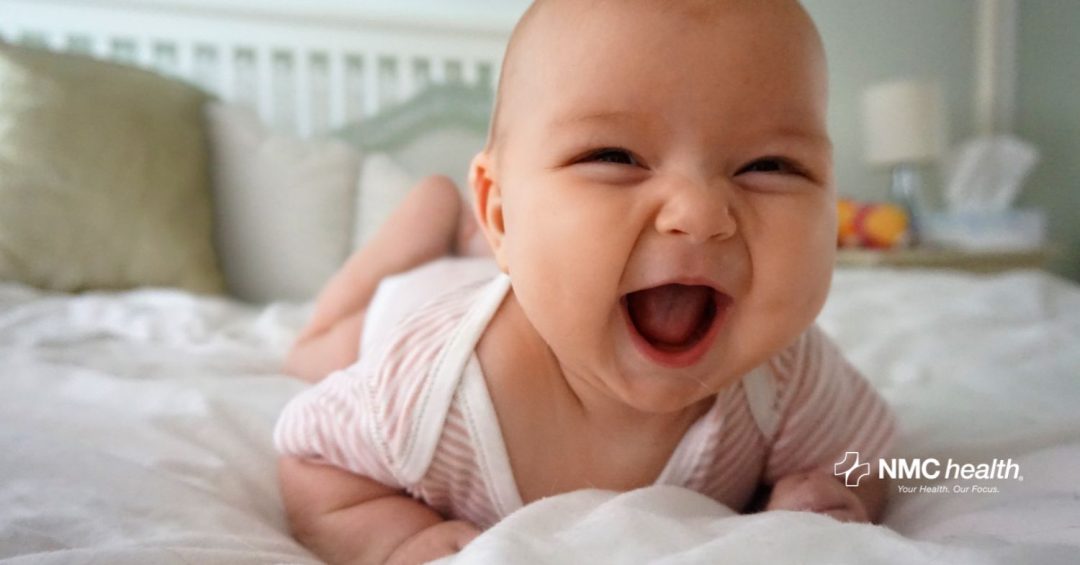Bringing a new baby home is exciting – and, let’s be honest, a little overwhelming. Between feeding schedules, sleepless nights, and adjusting to life as a parent, there’s a lot to think about. The good news? Keeping your little one safe doesn’t have to be complicated.
September is both Newborn Screening Awareness Month and Baby Safety Month, making it the perfect time to share a few important reminders every parent should know.
From the very first hours of life to those first car rides and naps at home, these small steps give your baby the healthiest start possible.
Newborn screening: The first step in protection
Newborn screening is one of the very first tests your baby will ever have. Within the first few days after birth, a tiny blood sample is taken from your baby’s heel, along with a quick hearing test and a pulse oximetry screening which looks for potential issues with the heart or lungs.
Why is this so important? Because newborn screening can detect rare but serious conditions before symptoms appear. Many of these conditions are treatable if caught early, but may cause serious health problems if left undetected.
The screenings are:
- Quick – usually done in minutes
- Safe – just a small heel stick and gentle checks
- Lifesaving – giving babies the chance to grow up healthy
These screenings are required by the state, but as a parent, it’s important to know what’s being done and why. If you ever have questions, talk with your baby’s care team. Understanding newborn screening helps you feel confident that your baby is getting the healthiest possible start.
Safe sleep: Remember the ABCs
So, you’ve left the hospital and brought your baby home. One of the most important ways to protect your baby at home is by following the ABCs of safe sleep.
- A – Alone. Your baby should always sleep alone, in their own crib. No pillows, blankets, toys, or bumper pads.
- B – Back. Place your baby on their back for every nap and nighttime sleep. This position is the safest and reduces the risk of SIDS (sudden infant death syndrome).
- C – Crib. Use a safety-approved crib with a firm mattress and fitted sheet. Never let your baby sleep on couches, armchairs, or in adult beds.
Following the ABCs makes it easy to remember the safest setup. It’s a simple habit that can safe lives. And it helps your baby (and you!) rest easier.
Car seat safety: Every ride, every time
Before you even leave the hospital, your baby will need to be buckled safely into a car seat. But here’s a surprising fact: studies show nearly half of all car seats are installed incorrectly.
To make sure your baby is protected on the road:
- Use a rear-facing car seat in the back seat, every time.
- Make sure the straps fit snugly and the chest clip is at armpit level
- Have your car seat checked by a certified child passenger safety technician. It’s free – and you can have it done right here at NMC Health!
Taking the time to learn the right way to buckle up can make all the difference in an accident.
Everyday baby safety
Beyond screenings, sleep, and car rides, everyday safety at home is just as important.
- Check water temperature before baths to prevent burns
- Watch for choking hazards
- Baby-proof cords and outlets before your little one starts crawling
- Test smoke and carbon monoxide detectors regularly
Taking small steps each week to make your home safer can give you peace of mind.
Your partner in baby's health and safety
As a parent, you’ll never stop worrying about your child. However, knowing the basics of newborn screening and baby safety can ease some of those worries. From the hospital nursery to your living room, these simple practices add up to big protection for your little one.
You’re not in this alone. Our Family Birthing Center staff is here to answer questions, connect you with answers, and support you every step of the way. Because every baby deserves the healthiest – and safest – start in life.


